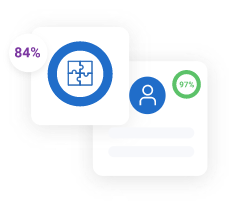- Application
- Information
Apply through Brive
We are official partners! Complete your application for free and earn benefits!
Free review on your application |
1:1 counselling by certified consultants |
Higher acceptance rate on your top choices |
Duration
2 Years
Language
English
100% Online & Exclusive Scholarships for Greek Applicants
Study from anywhere 100% online, obtain a recognized British degree and benefit from exclusive scholarships for Greek applicants. Apply through Brive.
Schedule a free callProgram Description
The Master in Mass Communications (Online) (MA) at Liverpool John Moores University will explore mass communications across a range of media forms including: entertainment media, broadcast and digital, public relations, advertising and journalism.
The program will address issues of policy, governance, professional practice, international communication flows, digitalisation, political economy, cultural practice and research methods.
The Master in Mass Communications (Online) (MA) aims to provide a progressive and challenging curriculum that is informed by contemporary research and responsive to the changing nature of the Communication industries.
Liverpool John Moores University is ranked 2nd best university in the UK (University Compare 2025 Rankings).
Applications are accepted on a rolling basis, with start dates available monthly.
Duration: 2 - 5 years
Delivered through Unicaf
The program will address issues of policy, governance, professional practice, international communication flows, digitalisation, political economy, cultural practice and research methods.
The Master in Mass Communications (Online) (MA) aims to provide a progressive and challenging curriculum that is informed by contemporary research and responsive to the changing nature of the Communication industries.
Liverpool John Moores University is ranked 2nd best university in the UK (University Compare 2025 Rankings).
Applications are accepted on a rolling basis, with start dates available monthly.
Duration: 2 - 5 years
Delivered through Unicaf
Entry Requirements

Are you eligible to apply?
Sign up, check the entry requirements, and find out your compatibility with the program.
Aims of the Program
The specific aims of the program are to enable students to:
- Critique key theories and concepts that underpin the study of mass communications
- Undertake the evaluation of contemporary mass communications scholarship and professional practice
- Critically debate the political, legal and ethical aspects of media and communication processes, systems and participation
- Recognise and anticipate developments in the role played by media and communication in economic and political organisation at local, national, regional, international and global levels
- Carry out original and independent research through the development of a critical appreciation of research methodologies appropriate for the study of media and mass communications
- Meet the challenges of employment in a global society through the development of their intellectual, analytical and research skills related to the study of mass communication
More
Learning Outcomes
A student who is eligible for this award will be able to:
- Critically evaluate how mass communications are organised, operated and managed
- Display a critical awareness of the roles that mass communications play in a range of cultural and social formations
- Demonstrate an advanced understanding of the varied contextual factors influencing mass communications industries and the role of these industries in contemporary political and social life
- Critically evaluate the limitations of research methodologies and using this judgement propose their own research design
- Demonstrate a critical awareness of current debates and research in mass communications
- Draw upon knowledge of the ways in which theories and concepts have developed in particular contexts in their assessment of contemporary issues and debates
- Appraise legal, ethical and regulatory frameworks which structure mass communication processes and practices
- Critically reflect upon their research and professional practice.
- Engage critically with theories and concepts in mass communications and put them to productive use
- Develop substantive and detailed knowledge and understanding in one or more designated areas of the field
- Consider and critically evaluate their own work in a reflexive manner with reference to academic and/or professional issues, debates and conventions
- Critically appraise mass communication with appropriate reference to social context and diversity of media use and engagement
- Communicate key theories, methods and concepts for the purpose of mass communications analysis
- Design, carry out and present various forms of research involving sustained independent enquiry at an advanced level
- Propose, design and conduct research that will demonstrate a sophisticated understanding of concepts, information and techniques at the forefront of the discipline
- Understand the limits of the major research methods associated with mass communications, and be able to\ apply this knowledge critically to their own work
- Apply critical debates in mass communications, including those concerned with ethics, policy and professionalism, to practical work.
- Appreciate how diverse audiences and communities engage with mass communications at local, regional, national, international and global levels.
- Work in a flexible and independent way, showing self-discipline and reflexivity
- Plan and implement tasks in a professional manner
- Communicate their findings clearly to specialist and non-specialist audiences
- Initiate, develop and realise distinctive and creative work within various forms of digital writing
- Retrieve and generate information, and critically evaluate sources, in carrying out independent research
- Communicate ideas at an advanced level, deliver work to a given length, format, brief and deadline, properly referencing sources and ideas and adapting a problem-solving approach demonstrating professionalism
- Put to use a range of IT skills from basic competences such as data analysis and word processing to more complex skills using web-based technology or multi-media, and develop as appropriate, specific proficiencies in utilising a range of media technologies.
More
Curriculum
Outdated Content
The content has not been updated in the last 6 months
Need help applying to this program?
Schedule a free 20-minute counseling session today!